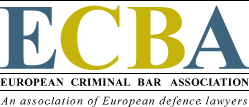Anti-Corruption in Europe (ACE)
At the level of the EU, corruption is considered as one of the main challenges for European societies. Early in 2014, the EU Commission released its first anti-corruption report (not available online anymore, the project was dropped, details here) and in 2015, DG Migration and Home Affairs of the European Commission launched an “Anti-corruption experience sharing programme” to “support Member States, local NGOs and other stakeholders in addressing specific challenges identified in the EU Anti-Corruption Report” [1].
Also, bribing foreign officials has become a crime in most countries, triggered by international legal instruments, like the OECD Convention on Combating Bribery of Foreign Public Officials in International Business Transactions. The risk of criminal prosecution for multinational companies and individuals has further increased due to national legislation with jurisdictions going beyond the national borders, such as the US Foreign Corrupt Practices Act or the UK Bribery Act 2010.
Post-Covid, corruption is even more widespread and entrenched in many sectors of public life. The fight against corruption continues to be among the EU’s top political priorities, however, the current EU legal framework on corruption is outdated and incomplete. There is still no legally binding instrument at the EU level to tackle corruption, i.e. the Anti-Corruption Directive
The EU Commission plans to update EU rules, including the creation of international standards such as the United Nations Convention Against Corruption (UNCAC), binding in the EU. [2]
The objective of those measures is to ensure that all forms of corruption are criminalised in all Member States, that legal persons may also be held responsible for such offences, and that these offences incur effective, proportionate, and dissuasive penalties

Considering the above the ECBA created a working group on anti-corruption and bribery in Europe (ACE).
Anti-Corruption in Europe (ACE)
The ECBA shares the view that the fight against corruption and the protection of fundamental rights are complementary and not conflicting objectives. At the same time, implementing and enforcing the criminalization of corruption has to be carried out in full respect of fundamental rights and rule of law principles.
Aims and Tasks
In this light, the purpose of the ACE WG is to improve knowledge and awareness among defence practitioners of various anti-corruption instruments (and related legislation such as Anti Money Laundering Instruments), and procedural and other ECHR safeguards in anti-corruption cases (where such safeguards may be diluted due to the significant public interest in fighting against corruption, including confiscation), in order to provide effective advice and representation.
In addition, the WG also aims to inform and advocate on procedural and other ECHR safeguards in cases of corporate criminal liability and the application of these safeguards to legal entities i.e. their representatives.
The WG aims to participate in consultations in the EU legislative process and to publish statements in response to any proposed new measures. The ACE WG will work closely with the EPPO WG given the proximity of their scope.
Initiatives
The group has initiated several knowledge-sharing activities, partnered with big4 audit firms and Chambers of Commerce on awareness raising events, participated at various conferences (i.e. 1st Hellenic Anti-Corruption Conference), designed a simulation model cross-border case, participated in tender processes for relevant projects, delivered in-house training, etc. ACE has so far issued 9 country reports on the topic and established a European-wide network of contacts with experience in corruption cases.
In 2023 the ACE WG published an ECBA Statement on the new EU Commission proposed Directive on Combating Corruption. In 2024, the WG participated at the First Anti-corruption Forum in Ukraine on the topic of Peculiarities of Consideration of Corruption Cases under Martial Law. ACE gave an interview to a prominent Ukrainian legal magazine highlighting the purpose of ACE on increasing the level of knowledge and awareness among practicing lawyers regarding various anticorruption instruments, as well as procedural and other guarantees of the European Convention on Human Rights in corruption cases. According to the organizers, the
interview received many positive reviews from Ukrainian colleagues, including both judges and lawyers. ACE recently organised the joint ECBA’s response to the EC questionnaire on AML related issues titled 'Evaluation of Directive (EU) 2018/1673: Questionnaire for NGOs, think-tanks, academic institutions & European associations'.
Future initiatives
ACE will incorporate the work of the now defunct ECBA money laundering project from 15 years ago. There is a plan to update country reports on their anti-corruption legal framework. Members are invited to identify and bring attention to potential new areas of development of the WG’s work. The group is being co-chaired by Amedeo Barletta and Vladimir Hrle.
The members of ACE are:
- Alexis Anagnostakis (Greece)
- Adriana de Buerba (Spain)
- Jurjan Geertsma (The Netherlands)
- Tamás Gerö (Hungary)
- Wiliam Glover (Ireland)
- Nina Karačić Brković (Bosnia and Herzegovina)
- Albert Janet (France)
- Mihai Mareș (Romania)
- Anna Oehmichen (Germany)
- Juan Palomino (Spain)
- Olga Prosyanyuk (Ukraine)
- Andrea Puccio (Italy)
- Veronica Spiteri (Malta)
- Jaanus Tehver (Estonia)
- Chris Whalley (United Kingdom)
[1] Cf.
[2] Cf.
ECBA Statement on the new proposed Directive on Combating Corruption - November 2023
Overview on anti-corruption rules and regulations - country reports
The European Criminal Bar Association (ECBA) welcomes the EU Commission’s new initiative to tackle corruption.
The Commission drafted a new Directive of the European Parliament and of the Council on Combating Corruption (Proposal). The ECBA underlines the need to respect the higher standard for procedural safeguards and due process principle and fair trials also in this very sensitive field of law.
Please click on each country name to read the respective report:
© 2026 ECBA

